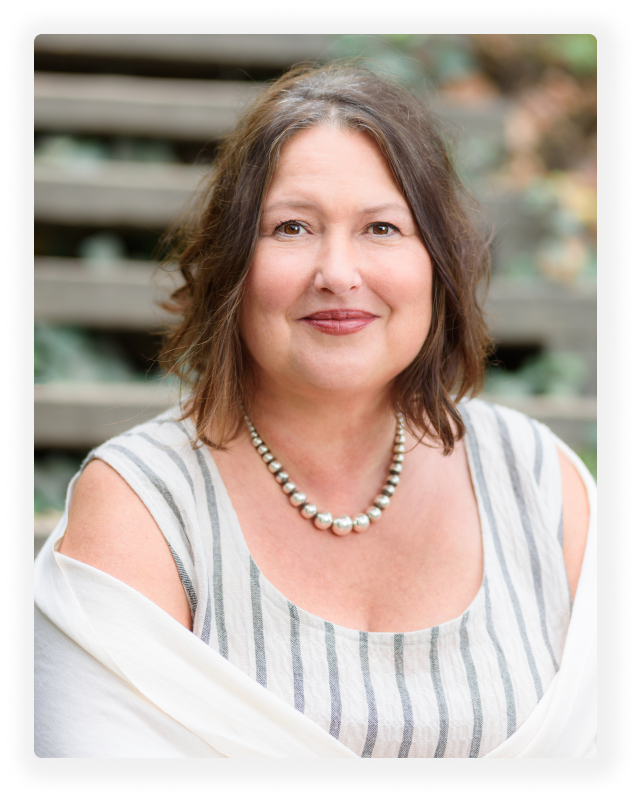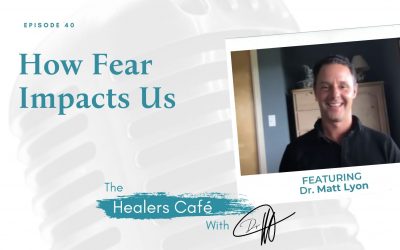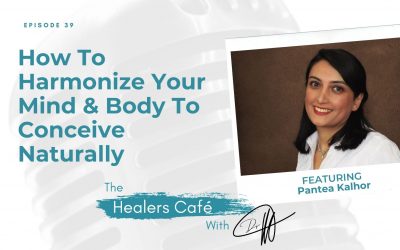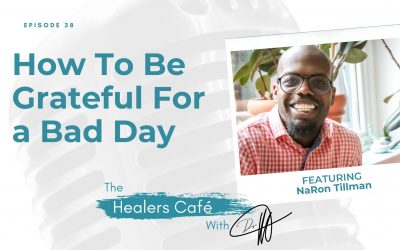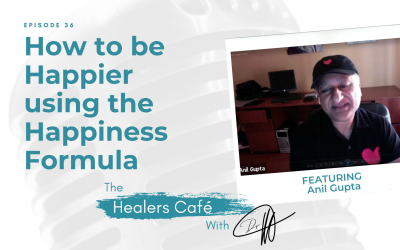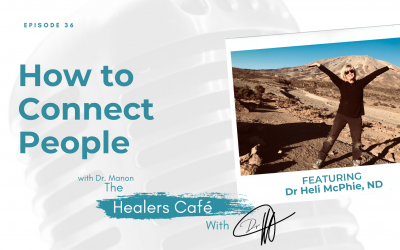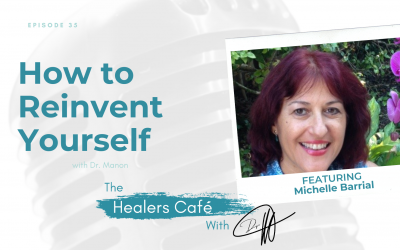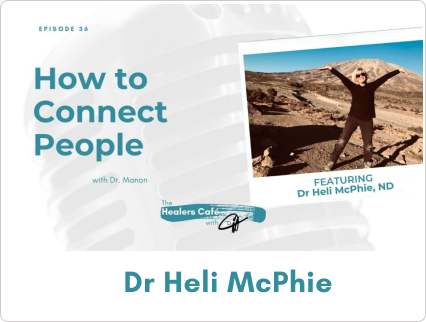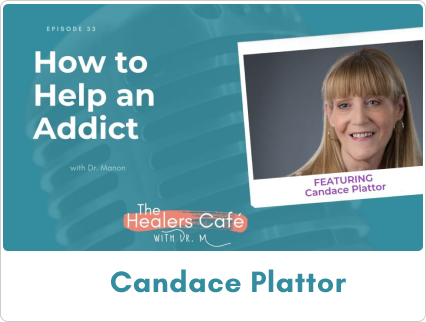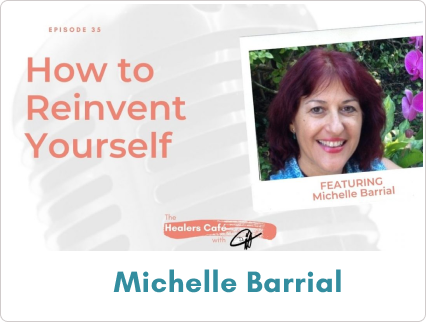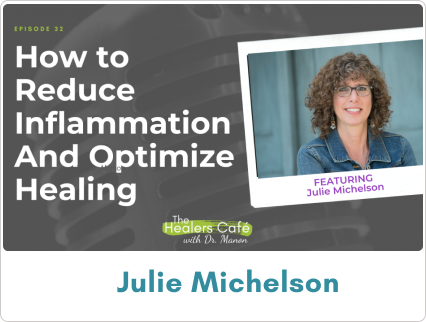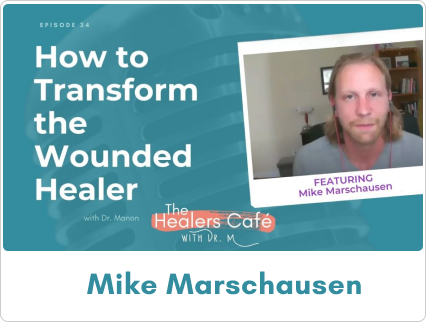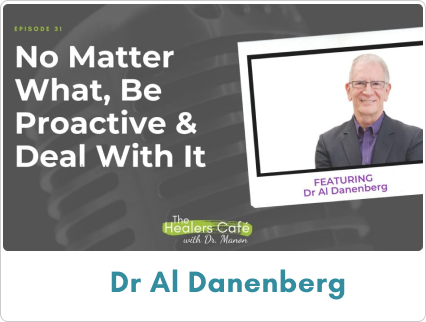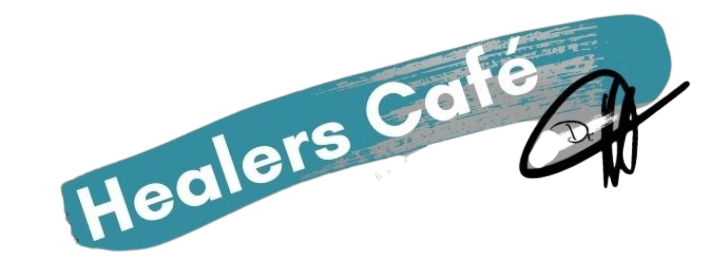
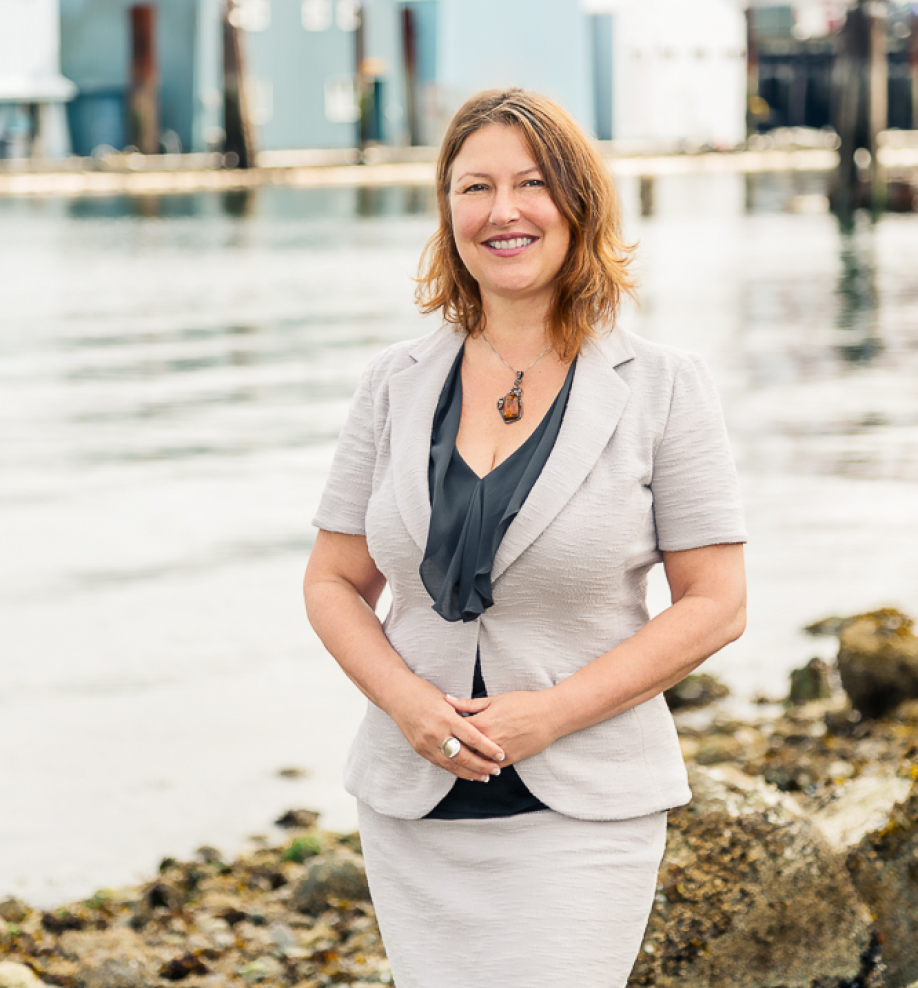
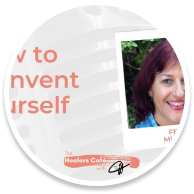
Michelle Barrial
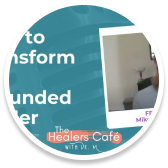
Mike Marschausen
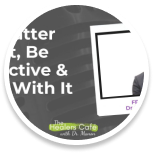
Dr Al Danenberg
iTunes | Google Play | Spotify, | Libsyn | iHeartRadio | Gaana | The Healers Cafe | Radio.com | and many more
FEATURED INTERVIEWS
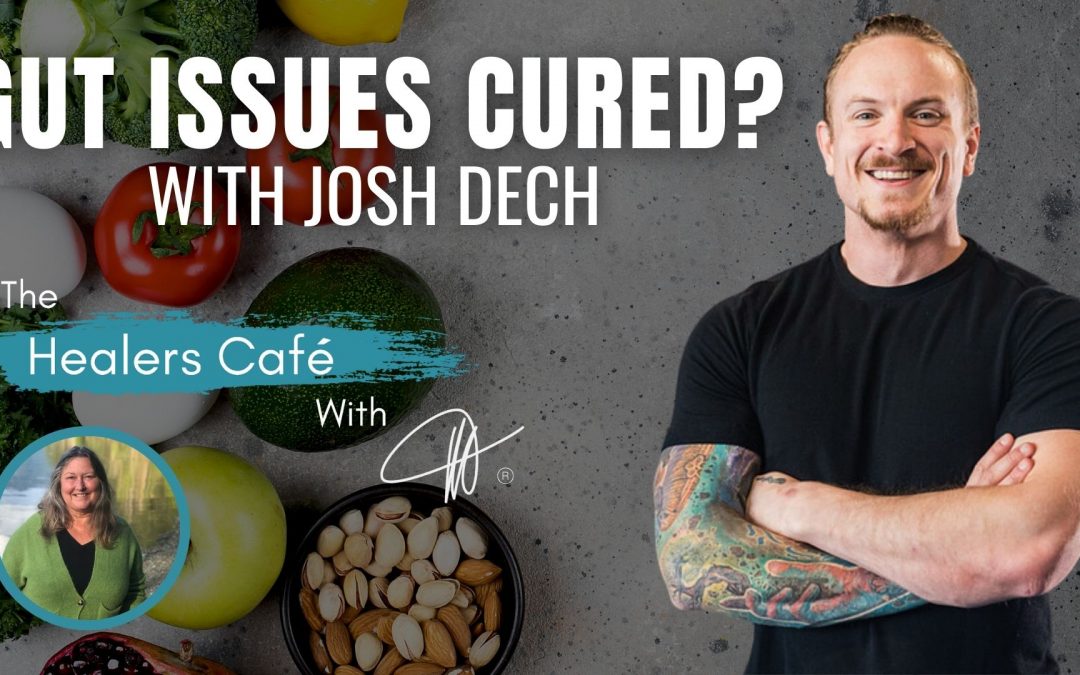
Josh Dech
Exploring the Causes of Gut Problems such as IBS and Crohn’s – Is It Possible for Your Body to Return to Normal?
In this episode of The Healers Café, Manon Bolliger, FCAH, RBHT (facilitator and retired naturopath with 30+ years of practice) chats with Josh Dech about successfully treating seemingly incurable conditions through his work as a holistic nutritionist.
Highlights from today’s episode include:
Josh Dech
Now toxins can be anything commonly in the gut disease space, we see mold, toxins, we see heavy metal toxins, we see environmental toxins can be a part of it. What are you breathing? What are you drinking? What are you eating? Are there toxins in your food, your perfumes, your chemicals?
Manon Bolliger
The diagnosis are just names that they call conventionally allopathic medicine. That’s a stage, but they’re not inherent to you. The entire stages, all the journey is just a deterioration of the same problem
– – – – –
Josh Dech
That’s what medications do. Your body screams with symptoms saying help me I’m inflamed. I’m dysfunctional, do something. And we medicate and mask the symptom, put tape over its mouth and go look, we solved the problem. A diagnosis means nothing. It’s a descriptive word, not an inevitability.
ABOUT JOSH DECH
Josh is an ex-paramedic and Holistic Nutritionist, specializing in Crohn’s and Colitis, and other related gut issues. Having reversed over 250 cases of Crohn’s and Colitis something doctors thought to be impossible, he’s now been connected to some of the world’s most renowned doctors.
He’s since been recruited to the Priority Health Academy as a medical lecturer, helping educate doctors on the holistic approach to gut disease, while building his podcast
ReversABLE to a top 5% globally ranked show.
Core purpose/passion: I believe we all have a purpose to serve, and part of mine is helping others heal, get their lives back, and live the life they’re supposed to – to live out their purpose.
Freebie | Website | Facebook | Instagram | LinkedIn | YouTube |
ABOUT MANON BOLLIGER, FCAH, RBHT
As a recently De-Registered board-certified naturopathic physician & in practice since 1992, I’ve seen an average of 150 patients per week and have helped people ranging from rural farmers in Nova Scotia to stressed out CEOs in Toronto to tri-athletes here in Vancouver.
My resolve to educate, empower and engage people to take charge of their own health is evident in my best-selling books: ‘What Patients Don’t Say if Doctors Don’t Ask: The Mindful Patient-Doctor Relationship’ and ‘A Healer in Every Household: Simple Solutions for Stress’. I also teach BowenFirst™ Therapy through Bowen College and hold transformational workshops to achieve these goals.
So, when I share with you that LISTENING to Your body is a game changer in the healing process, I am speaking from expertise and direct experience”.
Mission: A Healer in Every Household!
For more great information to go to her weekly blog: http://bowencollege.com/blog.
For tips on health & healing go to: https://www.drmanonbolliger.com/tips
SOCIAL MEDIA:
– Linktr.ee | Rumble | Gettr | Facebook | Instagram | LinkedIn | YouTube | Twitter |
About The Healers Café:
Manon’s show is the #1 show for medical practitioners and holistic healers to have heart to heart conversations about their day to day lives.
Subscribe and review on your favourite platform:
iTunes | Google Play | Spotify | Libsyn | iHeartRadio | Gaana | The Healers Cafe | Radio.com | Medioq | Audacy |
Follow The Healers Café on FB: https://www.facebook.com/thehealerscafe
Remember to subscribe if you like our videos. Click the bell if you want to be one of the first people notified of a new release.
* De-Registered, revoked & retired naturopathic physician after 30 years of practice in healthcare. Now resourceful & resolved to share with you all the tools to take care of your health & vitality!
TRANSCRIPT
Introduction 00:00
Welcome to the Healers Café. The number one show for medical practitioners and holistic healers, to have heart to heart conversations about their day to day lives, while sharing their expertise for improving your health and wellness.
Manon Bolliger 00:20
Welcome to the Healers Café. And today I have with me Josh Dech, and he’s an ex paramedic and holistic nutritionist that is specializing in Crohn’s and Colitis and other obviously related gut issues. And basically, after reversing well over 250 cases, doctors started questioning and looking at him. I’m gonna get you going into that in more detail, but why don’t we first start, first of all, well, welcome. And why don’t we start like, what got you focused? What happened? Why this? Why this path? Let’s start there?
Josh Dech 01:03
Yeah. It’s a great question. It was a lot of happy accidents. You know, I was a paramedic, like you said, my first career I graduated at the age of 19. And started very young very early. But it was sick care, right. As I’m sure you’re aware, we pick the same people up for the same conditions over and over, they go back to the hospital for the same medication or different medication for the same condition until they died from that same condition. So it never actually got fixed. And it was sort of this belief that disease is innate to the human body. These are the conditions you just have. And the only way to patch that hole is with pharmaceutical drugs until you die. And that just didn’t sit right with me and through a chain of happy accidents. Once again, I ended up becoming a personal trainer. So here I am. 21-22, very short paramedic career. And the first one of my first clients who came to see me 57 year old woman, she was on 17 pills and insulin for breakfast. She had nine pills and insulin for bedtime. She had CPAP machine for bedtime, she had hypertension, she was on disability, the works. And so here we are now two years later focusing on food, nutrition, exercise, lifestyle, basic stuff, 59 years old, Manon. And she ended up breaking a world record in a …
Read more...
weightlifting competition. And she kept breaking them up till about 60 to 63 when she retired, it was amazing. But that was my first window of like the human body can heal itself. It’s remarkable. And so once we started on that track, I realized that there’s more to this and I started diving even as a personal trainer more into depression, anxiety, joint pain, and I started understanding that even these conditions, mechanical functional conditions like people coming in with…what was the risk condition I forget now it’s it’s eluding my brain today to apologize. Carpal Tunnel Syndrome, or with you know, joint dysfunction, or they what doctors called, quote, functional neurological issues in their hips and feet. It was all fixable. We get people who’ve seen the Mayo Clinic and had surgeries in eight weeks, their pain, the nerve pain was gone. Because we just restructured the muscles in the same thing we found happened inside as we regulated the nervous system, fix the food, fix the gut, skin issues, depression, anxiety, insomnia, mental health conditions, inflammatory conditions all just disappeared. And so one thing led to another I started diving in, I was at a trade show, I watched the woman talk about the gut, and 30 minutes my jaw was on the floor. It was love at first sight. I said that’s what I’m doing. For the rest of my life. I saved up went back to school became a nutritionist, and here we are. And I’m specializing in the worst gut diseases and it’s the most fascinating career I could have ever asked to fall into.
Manon Bolliger 03:36
Wow, that’s really very enthusiastic for you know, for truly a condition that most people still believe, you know, can’t be fixed. It’s like, oh, well, I’m guess I’m gonna have to cut out a piece of my gut or, you know, or it runs in the family, because maybe they eat the same stuff you know. So, yeah, no, it’s very interesting. So, what…so nutrition is the main main aspect you’re changing with people to help them?
Josh Dech 04:11
So it depends on where they are on the spectrum. So dealing with Crohn’s Colitis, nutrition is actually one of the things I address the least interesting enough. Because most people on the Crohn’s Colitis that ended up coming to see us with severe gut disease, they’ve really tried a lot of everything. You know, I like to say that people we help most of those who have tried everything, every supplement diet protocol aren’t getting help from the doctor. And that’s who we tend to help so a lot of these people do have the nutrition dialed in, but there’s a small percentage who still eat the same standard American garbage, frozen food, package food, fried foods, but most of them do have their diet dialed in. So we have to actually get to the root of inflammation beyond just food and nutrition, the actual things driving the inflammation in their immune system in the first place.
Manon Bolliger 04:56
Go ahead, explain.
Josh Dech 04:57
Oh I’d love to, sure. So I’ve actually created this little like a Venn diagram. It’s a three ring Venn diagram where I describe the root of gut disease now pertaining to Crohn’s Colitis specifically. But for those listening who go, Well, I’m not really interested in Crohn’s Colitis, or maybe I don’t have it myself, I want to be very clear, I look at gut health as a spectrum, right, I describe it as wearing a pair of shoes, without socks, and that heel rubs and it gets a little red, and it gets a little blister until it bleeds. And that’s sort of the spectrum of something like bloat today, irritable bowel syndrome tomorrow, and then Crohn’s or colitis the next day. It’s this progressive deterioration of the GI tract. And so we look at is really, there’s typically three root causes for all this to start happening. The first one we have to look at, this is the first ring of my three ring Venn diagram is toxins. Now toxins can be anything commonly in the gut disease space, we see mold, toxins, we see heavy metal toxins, we see environmental toxins can be a part of it. What are you breathing? What are you drinking? What are you eating? Are there toxins in your food, your perfumes, your chemicals? They tend to be lower on the totem pole. But do we think of it this way, our health is like a glass of water. Right now, our illness is our ability to empty that glass how healthy we can stay. But if we fill that glass, it overflows. That’s when we have symptoms, we develop disease. But obviously that disease started as soon as the glass started filling up. If you can’t empty that glass, well, eventually it’s going to overflow and eventually you have disease, which is where diseases start sometimes many months or many years prior to having true symptoms or diagnosis. And so as this glass fills up, maybe toxins are one drop in the bucket, that’s okay. Maybe mold toxicity or something else is 50% of your bucket. Everyone’s going to have a different ratio, but toxins are what’s filling this glass of water leading to overflow. The second thing we have to look at is microbial imbalances. Now for a lot of individuals, this is going to be things like in the Crohn’s Colitis space. Specifically, we see Candida or fungal overgrowth, we see a fair bit of parasites, probably 50-60% of our client tells dealing with parasites. We also see Clostridium, which is a specific strain of bacteria. Many people might be prone or familiar with C. diff from the hospital right Clostridium difficile, that’s a Clostridium species or strain in the species umbrella. So these are what we see in microbes. Now we know our gut bacteria. Fun fact, Manon, when we are born, we’re about 99% human cells. And as an ND, I’m sure you’re familiar with this, we’re born 99% Human 1% of our makeup is actually bacteria, it’s fungi and bacteria and all these species that get into our gut, and they colonize on our skins through the birth canal. When we die, or 90% microbes and only 10% human. So the number is 10 to one, which means this is very important, massive and very delicate ecosystem. When it comes imbalanced, these microbes then cause inflammation and disease and problems. So that’s our second leg to gut disease, we have toxins, we have microbial imbalances, be it fungi, parasites, or whatever it might be. The third leg is diet and nutrient deficiencies. Are you eating things contributing to inflammation? Is their junk food that’s feeding bad bacteria causing overgrowth or contributing to toxins, or food that is nutrient void? You’re lacking vitamins and minerals and nutrients and amino acids, and necessary things your body needs to build, because it’s constantly healing itself. It’s constantly turning things over and turning over cells. So are you eating things that are contributing to the problem or lacking what you need to be healing? These are sort of the three legs to gut disease. Now, it’s a Venn diagram. So there are more layers that turn to autoimmunity. But this is that sort of the three legs of gut disease, toxins, microbes and nutrients.
Manon Bolliger 08:44
And what impact I’m just curious, because I don’t disagree with your VAT analysis. But what about and where do you place emotions in this?
Josh Dech 08:56
This is a very interesting topic and truthfully Manon, it’s not something I claim to have an expertise on. However what I can speak to is that our emotional regulation is huge. But then we have to ask chicken or the egg. So we know our emotional regulation can lead to immunosuppression, which will combat your body’s or suppress your body’s ability to combat toxins and microbes and break down. It will also if you’re in say fight or flight, you’re going to impact your body’s ability to be restful and digest. You’re not going to break down digest absorb your conveyor belt, your assembly line of the gut will be all out of whack. Right? Imagine a Ford Motor Company’s assembly line got all now time you’d have a car coming out with six wheels and no roof. It wouldn’t make sense? I mean, that’d actually be a dune buggy be pretty cool, but you get the idea. So the assembly line gets all junked up. So our end products get messy. And so emotions and regulation have a huge part to play cellular wellness. We can dive into frequency and vibration and the importance of earthing and grounding and how all this starts to come into play with our ideal lives integrated with nature, we do live in a world that’s not compatible with our own biology. So they are a huge part of what’s necessary. However, it’s the chicken or the egg, does somebody have emotional issues that disrupted their gut, or gut problems that change the neuro chemistry of their body and their brain leading to emotional issues. And so we have to figure out which ones which and in my practice, we don’t address a ton of emotion specifically, we do talk about it. But it’s not something we do as much as I think I would like to it’s. It’s tough for me to get 16 weeks with somebody to fix their gut diseases, like where do you start? Well, it’s a great question. I’m glad you brought it up.
Manon Bolliger 10:39
Well, I mean, I only bring them up because it’s, you know, the in the field of gastroenterology that the first connections, that may be how we feel affects our body. Right. And this is sort of in the Decart, you know, model of, you know, 3d dimension, and we don’t have any other impact, right. But I do see absolutely the cycle of the chicken and egg. And the thing is, once you’re in that cycle, you don’t know, the contributing factors just keep going, right? It’s very hard to kind of go well, you know, if you would stop being so angry, you know, or hold your anger in so badly, or, you know, or whatever, it might affect things. Yeah.
Josh Dech 11:25
Well it does destroy your body. I mean, I that’s what killed my uncle, we truly believe that he had a lot of bitterness and resentment and hatred, his whole life his doctors thought he had MS or some kind of gut disease test after test came back negative. There’s nothing they can confirm on their diagnostic criteria. But he was a really hateful, bitter man, his body slowly withered away, and he got sicker and sicker. And we do like my family. And I believe that it was, it was bitterness that actually killed them. And so I wholeheartedly believe our emotions are a huge part of that.
Manon Bolliger 11:56
Well it can definitely create the environment, that then it does all those three things. So it’s very, it’s very hard to know which way and ultimately, it doesn’t matter as long as you open one door, you know, and start fixing parts of it offering the body what it needs to heal. The body can figure it all out on its own.
Josh Dech 12:17
Absolutely. You give it the tools and resources. It’ll just do it. Our bodies know what it’s doing. We can’t outsmart them.
Manon Bolliger 12:24
Yeah, no, no, exactly. So let’s go through with no names, and you know, all of that. But let’s say somebody who has irritable bowel syndrome, because that’s kind of the middle, you know, well, a lot of people have that right? And then they’ll say, Oh, well, it’s fine. It’s just I’m anxious or, you know, so how would you address this in it like the way that you would you know, how, what happens? They come to see you. Where do you go, like, give us a bit of a overview of that journey?
Josh Dech 12:59
Yeah, that’s a very loaded question. I love it. We have to look at where they are on the spectrum, right. So I have what I describe as like the gut disease ladder. So it’s kind of a four rung ladder on the bottom, on the first side of the bottom left first rung, we have a healthy gut, which again, as things enter and become problematic, that wear and tear progresses to what looks like IBS or irritable bowel syndrome. And then if you’re further along, you can have degrees of irritable bowel syndrome from a little bloat to some food sensitivities to one bowel. I’ve had people come in with one bowel movement every two to four weeks. I’ve had people with 50 a day. And so it really depends, but as on the second rung, now, irritable bowel progresses all the way to the right. Well, now you have maybe IBD, or inflammatory bowel disease, which is where we get to our Crohn’s Colitis rung up to the next, which is your autoimmune, how severe is it? How many layers do you get? And so it’s a very layered process. So first of all, where are you? Now, what’s interesting about this approach, though, if we have a split from Western medicine, see Western medical doctors are typically trained, where they manage symptoms, and I’ve had MDs tell me it’s cookbook medicine, we go in, we take a look at here are your symptoms, therefore, we put you in this box, we give it a label, that’s your diagnosis. Now that word to them is like, here’s the condition like it’s innate to the human body, you just have this thing we have to again, patch it with drugs. So here’s your drugs 12345 in this order, and if they fail, well, we can always cut the organ or whatever it might be your colon, maybe it’s you get a hysterectomy or your gallbladder gets removed or whatever they do, they just snip snip. And so we want to do is understand disease is not innate. So we have to go back to where this all started. Rather than going all the way to the right from symptoms, diagnosis, inevitability drugs, we go left. Let’s talk about what’s happening now. Okay, we’ll take me back to the first time this started. When did you start having irritable bowel issues? Were you a three year old? Were you a colicky baby? Or is it something that developed in your teens? Maybe it was after food poisoning or a certain vaccination you had gotten done? Maybe it was after you know a trauma or traveling, you went out somewhere, maybe you ate something, there’s always a route. And we can find that we know what threadto start pulling on. So we have to look at a few things. One, what is the beginning? Where did it start? Because then we can predictably tell you how you got to the place you are with 80 plus maybe 90% accuracy. We can quote read somebody’s mail. Okay, so it started at this age it finished here. By the time you were this age, did you experience X? Yep. Okay, what about this one? Did you experience Y? Yep. Okay, and Z. And we go through this process because the degradation of health is very predictable.
Commercial Break 15:32
What would your life be like if you were pain free? If you were one of the millions who suffer from chronic pain, the thought of just one day without it may seem impossible. This is often because conventional medicine tends to fall short in the treatment of pain, opting to prescribe pills or recommend surgery rather than getting to the root cause of the problem. But if you are suffering with emotional or physical pain, there is hope. Join the founder and CEO of Bowen College, Manon Bolliger, live online for Your Body Mind Reboot. Learn how to listen to your symptoms and get to the root cause of your pain. Plus be trained in basic Bowen therapy moves, so that you can reboot your body for optimal health. You don’t have to live in pain, you can heal, stop the pain pill cycle by visiting www.yourbodymindreboot.com. To learn more, and to register.
Josh Dech 16:42
Once you know what you’re looking at, and so we go back to the root, we figure out where it started. And then along the way, we just begin fixing the residual damage that was done. So if someone has a parasite, well, that parasite may have led to anemia, it may have led to SIBO, or small intestinal bacterial overgrowth, maybe it’s led to a myriad of issues or grinding your teeth, you got dark circles under your eyes, you’re fatigued, you’ve got bowel issues, you got bowel disease, maybe you’ve got gallbladder issues and your drainage pathways, your liver and limbs are all clogged up. So we have to start fixing these in the appropriate order. And then we can begin reversing the disease. But it begins with a thorough history, it begins with some symptoms and understanding the root. Unfortunately, Western doctors get seven or eight minutes with you because they have to get compensated by insurance, they don’t have the time. Whereas practitioners like you and I can spend an hour or two sometimes going through history and dissecting things to figure out where it started.
Manon Bolliger 17:34
And I just want to reiterate, in different words, but the same, the same notion, right. When you’re talking about this, this scale that keeps going, it’s as if and it’s like that’s kind of the break of thinking. The diagnosis are just names that they call conventionally allopathic medicine. That’s a stage, but they’re not inherent to you. The entire stages, all the journey is just a deterioration of the same problem basically, right? So that, and I think that really helps. Also, I mean, I got it, like, you said it, I just put it in different words. But the idea that it’s finding out where you are, so we can work backwards to the root of this, right. And with the, you know, some of the symptoms were why are they being aggravated, like if, for example, inflammation could easily be aggravated one with the wrong terrain, but also, adding endlessly foods that the body can’t tolerate or doesn’t like, you know.
Josh Dech 18:51
Attributing over and over to the same issue.
Manon Bolliger 18:53
Exactly.
Josh Dech 18:54
Absolutely.
Manon Bolliger 18:56
Yeah. Okay. So what…I mean, you shared a case that was so remarkable at the beginning, but what would you like to share maybe, you know, maybe a case that you didn’t think you could help or that you found really challenging, from your point of view. And then you figure it out, you know, just to kind of understand the breadth of what…yeah, what’s possible for people?
Josh Dech 19:29
Yeah, well, that’s, that’s a tough one to answer that the risk of sounding arrogant, it’s not the idea. Most of these cases aren’t very difficult and luckily, I do have help. You know, I have one of my mentors have been working with me for about half a decade. And if I have really tricky stuff, they go to him, he helps me with all that as well. So there’s a big difference in who we’re seeing and what kind of conditions come in. But we’ve had people like I said, with one bowel movement every two weeks to a bowel movement every month, we’ve had people with 50 a day, and it depends on the person you know. So I can use some of these names that are publicly available. They have, you know, testimonials on the website and everything as well. But Karen, for example, came in to see us and she was 52 at the time, and she had this for 16-17 years severe bowel disease and she was up to 50 bowel movements a day, blood mucus pain, and she had gone through the medical system she had seen her doctor she had three different specialists at the Mayo Clinic who all said arguably or ridiculously enough. Eat whatever you want. Food has no bearing on bowel disease. I’m like, That’s third grade biology of course it does. She went through all the drugs, all the medication, all immunosuppressive all the steroids and anti inflammatories and couldn’t get any relief. Three weeks circling back to your original point, emotions and nervous system, high stress overrun, we just for three weeks worked on driving her immune or her nervous system down, getting her to relax and sleep and just relax, more like to chill. And she went from 50 bowel movements to five to eight and three weeks most relief she’s had in 15-16 years. Sometimes it can be that simple. Now, there are many layers, you know, she’s got parasites and fungal issues that we were dealing with and you know, talking about, but the reality is some people can find relief very quickly. On the other hand, we have had people who were a bit trickier. I had a fella come in I can’t use his name for confidentiality, of course, but you know, he was dealing with some really severe bowel issues, tall kid as well, you know, six foot two and about 130 pounds rail thin losing a ton of weight. And his gut was really tricky. It wasn’t responding. He was really plugged up his drainage pathways, his bile ducts, his liver, his lymphatic system was all just really messy. And so we worked and worked to try to get him to make some progress. But he lives in Vancouver as well. And so we ship a lot of stuff from the States. There was time delays and they took a while getting started. They kind of hummed and hawed on getting started for months, I had trouble getting to his root cause. And then, as communication gets missed, we meet weekly, but if you miss three or four a week, it gets really tough to work with someone if we don’t see them all the time. And unfortunately, a whole lot of factors on our end and their end, he ended up not getting better, and then going in for emergency surgery. And so they had to remove…they ended up removing his entire colon is so unfortunately, there are some cases where timing is everything. We have a little girl, we were talking with her and I don’t mean to put this on the parents. But I just mean to say that time is of the essence of bowel disease. You never know. 11 year old girl we were talking last summer. And her parents kind of hummed and hawed like, do we work with them? Do we not like, do we get help, whatever, and her mom’s a nurse. So she’s conventionally trained. But unfortunately, this little girl, they just got started maybe a month ago at the time of this recording. And within a couple of days of just getting their paperwork started, she went in for emergency surgery. And so we never know where somebody’s at time is of the essence. And if you’re dealing with bowel disease, it can be really extreme. On the other hand, 16 years of bloody stool 50 bowel movements a day and we see relief in three weeks, and people are getting better. So it is unfortunately a big wide spectrum. But yeah, wherever you are, there’s still a great deal of hope.
Manon Bolliger 23:00
Ya know, no, I seem. I mean, I would concur, though, that was not my specialty. But I think too, you could probably speak to the fact that if you deal with gut issues, because that’s what you come in with, let’s say that a whole bunch of surprising other diagnosis’s disappear.
Josh Dech 23:21
Yes. Weird how that happens.
Manon Bolliger 23:25
Do you have a case that comes to mind?
Josh Dech 23:27
Oh, so many. So many. So we have people coming in. I’ll give you kind of a variety. We have people coming in with depression, anxiety, skin issues are going in for facials and colonics and all kinds of stuff, who no longer need to go into the esthetician for their regular facials because skin is better than ever because they’re detoxing. We were people coming in body covered head to toe in psoriasis. Well, psoriasis and eczema is a textbook parasite issue. When we look externally at the body, it was parasites causing the bowel disease, the psoriasis went away. Hair Loss goes away women dealing with really bad PMS symptoms. And if you’re having PMS symptoms, you’re having breast tenderness. You’re having bloating, cramping, even women who are your fully developed, you’re over 20-25 and your breasts are still growing. There is an estrogenic issue. Your estrogens are probably recycling and you’re actually having more problems. Dark thick cloth and menstrual blood versus bright red and thin. These are all symptoms of hormonal imbalances. We’ve had people you know women coming in who have had severe menstrual issues that the doctor said was not connected to their IBD or they’re gut disease, but you fix the gut and the menstrual issues fix themselves because they’re no longer recycling these other estrogens and these hormones start to rebalance. Hashimotos which is supposed to be an incurable autoimmune diagnosis. Curtis on our team here has fully reversed their antibodies are gone. There’s no longer Hashimotos in some of these clients we see. So if we talk about external manifestations, we call them EIM’s or extra intestinal manifestations. These are how diseases manifest outside of the gut. and all diseases can begin in the leaky gut. And so if you have a condition no matter what it is, I had ADHD myself, I was diagnosed with moderate to severe, and through dealing with my gut and fixing things 99% resolved. And so there’s a lot of things that we can do by just addressing the gut.
Manon Bolliger 23:29
There’s so many. Hmm. Yeah, no, I agree. Definitely. Let’s see, what else have we faced or something that you wanted to share? Despite all my questions that you, like, you’re dying to say here.
Josh Dech 25:10
There’s nothing I’m dying to say. I mean I think this is really important. You know, when we start looking at disease, again, I’d like to reiterate Western medical doctors look at disease states and disease conditions, as if their innate to the human body, or they’re just genetic genetics or the weak link, you get three people in a room, you can expose all three of them to mold one might get bowel disease, one might get asthma, one might get arthritis, put a fourth in there who gets Hashimotos, you put a fifth in there who gets some kind of skin condition, their hair falls out, whatever it is. Your genetics are the chain, that weak link is the one that breaks if you’re genetically predisposed to expressing inflammation through a pathway through an organ system based on your genes. That’s where it will go. But I think the most important thing is to say to people like Look, don’t accept a diagnosis as just being this inevitability, don’t accept it for being a condition that can’t be helped. A diagnosis is just a term that describes your symptoms. It tells you what is going on where it is happening, but it does not tell you why. All they do is push you to medication to mask your symptoms. I think about it this way. If you have a hostage in your living room, I don’t know if you’ve ever taken a hostage but no, God forbid you have. If you have someone in your living room, screaming, they want to leave, you put tape over their mouth, they go look, we fix the problem. We can’t hear them scream, they’re so happy to be there. That’s what medications do. Your body screams with symptoms saying help me I’m inflamed. I’m dysfunctional, do something. And we medicate and mask the symptom, put tape over its mouth and go look, we solved the problem. A diagnosis means nothing. It’s a descriptive word, not an inevitability. And so I’d encourage people not to accept that look to a functional practitioner, like someone like yourself, Manon, gut practitioners, people who do this for a living, and it can all be reversed. We just had to figure out the root cause and why you’re experiencing.
Manon Bolliger 27:27
Okay. Now, question, do you, because we’re on zoom here, do you or your clinic take new patients? And how’s do you work with them? Is it local? Or do you can you do it a combination? I’m sure your look, some of the tests must be done.
Josh Dech 27:47
Of course. So, the good news is just being a lowly nutritionist, we’re not actually run by a bunch of governing bodies. And so we have a lot more flexibility. Thank God for that. We can work all around the world. I’m here in Calgary, Alberta, up in Canada, we’ve got clients in the states in the UK, Vietnam, New Zealand, Australia, Africa, parts of Europe, Central Eastern, we work everywhere, which is a blessing because we’re not controlled by a regulating agency who says nope, you can only give these drugs, which is very challenging. And so it’s very easy to work with. I’, sure you’ve had that too.
Manon Bolliger 28:22
In the last few years, you know, when certain drugs are not allowed for, you know, financial reasons, basically.
Josh Dech 28:30
And suddenly, they’re they’re allowed again, after everything closes and the money’s been made.
Manon Bolliger 28:34
Yeah, exactly. I mean, it’s history repeats itself better. No, that’s great to know. So you’re here in Canada? Great. So one question with the increase of turbo cancers, these fast, suddenly occurring cancers that nobody understands why they’re coming. Um, I was just curious if you have come across them or if you have resources for people.
29:02
Yeah, so I’m not a cancer specialist. But I’ve actually met with some of the top doctors doing this. I had a chance to interview Dr. Paul Merrick, the FLCC. Brilliant, brilliant physician. He’s been cited over 46,000 times in medical literature, most educated man on planet Earth. Big fan, and he actually has a document called cancer care. It’s a wall of repurposed drugs and metabolic interventions in treating cancer that can be found on the FLCC’s website. If you type in FLCCC cancer care, the document will come up. But a lot of these cancers we’re seeing post, post virus if I can say the word without getting things back banished in, but post jabs, we’re seeing a lot of these cancers coming up. There’s a lot of immunomodulation and a lot of these drugs, these mRNA shots have actually really dramatically suppressed our body’s ability to fight off certain cancers. That on top of the spike proteins and other issues we’re now seeing. There’s also some interesting theories around quickly as a sidebar. Around parasites and cancers that things like cancer tumors might actually be encasing something toxic in your body to try to protect you from it, which is very fascinating, which is where we start to biopsy, there’s a huge prevalence of cancers metastasizing and spreading around the body. So it’s an interesting thing to explore. But Paul Merrick, I had him on my show, and he was talking about a prescription medication, anti parasitic, called Mebendazole, which has been used for any parasite. And there were some well known celebrities who had stage four cancer diagnosis, stage three, stage four who took this Mebendazole gone, it was cured. And this went from something like 15 cents a pill to $555 per pill after the fact. Because the pharmaceutical industry has decided, well, look what we have. It’s a golden goose let’s charge more. And so some really interesting research around it. Again, I’m not a cancer specialist myself, but check out that document from the FLCC it’ll blow your mind.
Manon Bolliger 29:28
Well, I’m sure there’s lots of people that you’ll be hearing from
30:40
We look forward to it. Easiest way to reach us if you guys want to chat. We got a podcast called Reverable, that’s reverse abel, the Ultimate Health podcast. You can reach us on social anywhere we can be found. It’s all at gutsolution.ca. That’s gut solution off singular .ca for Canada. Got solution.ca. We’d love to hear from you feedback. Contact questions. We’re here to help.
Manon Bolliger 31:21
All right. Well, thanks so much, Josh Dech. This is great.
Josh Dech 31:25
It’s a pleasure, Manon, thanks for having me.
Ending
Thank you for joining us at the Healers Cafe. If you haven’t already done so, please like, comment and subscribe with notifications on as I post a new podcast every Wednesday with tons of useful information and tips for natural healing that you won’t want to miss, go to DrManonBolliger.com/tips for more tips
RECENT INTERVIEWS
Dr Matt Lyon
How Fear Impacts us with Dr Matt Lyon on The Healers Café with Dr. Manon Bolliger, ND In this episode of The Healers Café, Dr. Manon Bolliger, ND, chats with Dr Matt Lyon, Chiropractor, acupuncture practitioner and a teacher of meditation Highlights from...
Pantea Kalhor
How To Harmonize Your Mind & Body To Conceive Naturally with Pantea Kalhor on The Healers Café with Dr. Manon Bolliger, ND In this episode of The Healers Café, Dr. Manon Bolliger, ND, chats with Pantea Kalhor who is a Fertility Coach, PTSD & CBT Coach,...
NaRon Tillman
In this episode of The Healers Café, Dr. Manon Bolliger, ND, chats with NaRon Tillman is the Director of Urban Yogis, Director of Inner Knowledge, Pastor of One Ministries, host of Walk In Victory Podcast Highlights from today's episode include: NaRon (06:13): then I...
Anil Gupta
How to be Happier using the Happiness Formula with Anil Gupta, ND on The Healers Café with Dr. Manon Bolliger, NDIn this episode of The Healers Café, Dr. Manon Bolliger, ND, chats with Anil Gupta who is a world expert on relationships and mindset. Highlights from...
Dr Heli McPhie
How to Connect People with Dr Heli McPhie, ND on The Healers Café with Dr. Manon Bolliger, NDIn this episode of The Healers Café, Dr. Manon Bolliger, ND, chats with Dr Heli McPhie, ND who truly believes in the power and beauty of collaborative medicine, connection and...
Michelle Barrial
How to Reinvent Yourself with Michelle Barrial on The Healers Café with Dr. Manon Bolliger, NDIn this episode of The Healers Café, Dr. Manon Bolliger, ND, chats with Michelle Barrial, a Life transformation coach, intuitive healer, author, speaker, hypnotherapist and...
